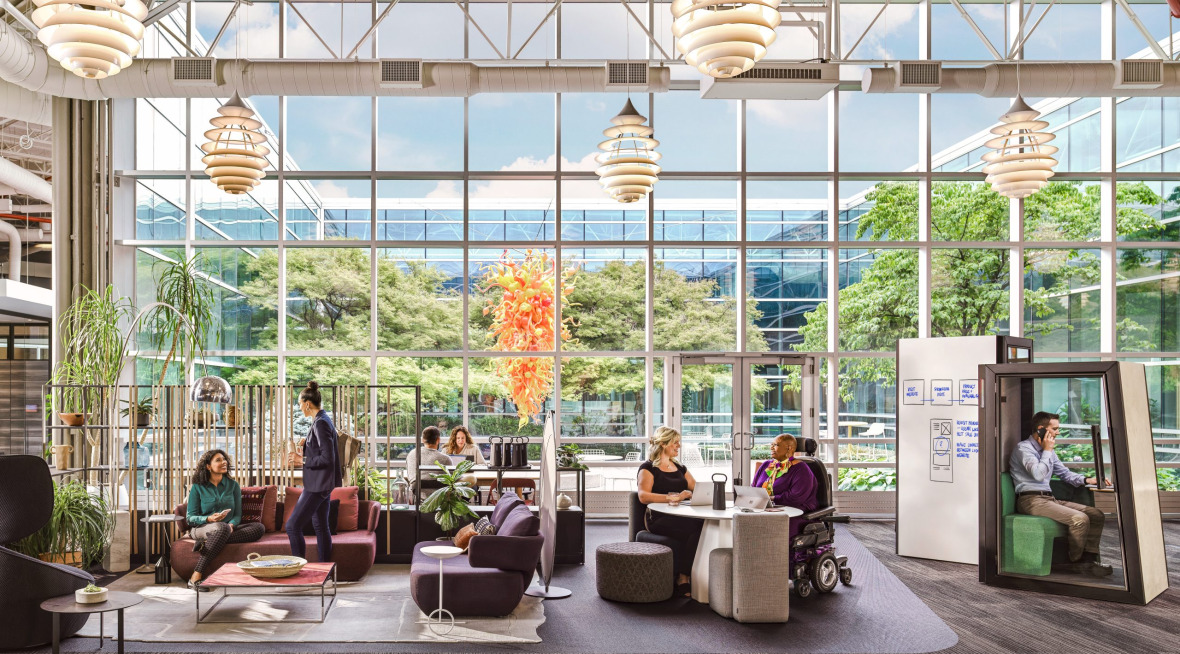Over the last few years, the workplace has drastically changed. In 2019, a mostly in-office environment shifted completely when COVID hit, and everyone was forced to work remotely. Post-pandemic, we saw another shift to a hybrid model, and even a little later, we are seeing hybrid change too. Employers are challenged to find a balance of productivity and meet the needs of their employees as they navigate through a hybrid setting. With that, office space designers are also feeling the wave of challenges as they navigate the changes.
The workplace designer’s job just got a little trickier, and they now wear many different hats, like the Philosopher, logistics specialist, real estate advisor, and even a business psychologist. From a logistics specialist’s point of view, they are looking to design spaces for the needs of different departments and teams. As a real estate advisor, they are now searching for spaces that not only have a low carbon footprint but also space for amenities like a gym or collaboration stations.
The Philosopher and business psychologist are the other two important roles of a designer. The Philosopher needs to understand the purpose of a space and be able to offer the same comforts of a home. The business psychologist’s goal is to understand their client’s needs and make recommendations based on their specific workforce industry.
Designers are working overtime to keep their clients happy as they navigate through these new workplace changes. While challenging at times, we do not anticipate the workforce going back to the older office setting model. Hybrid work will continue, and companies are looking to designs to help work through these obstacles.

